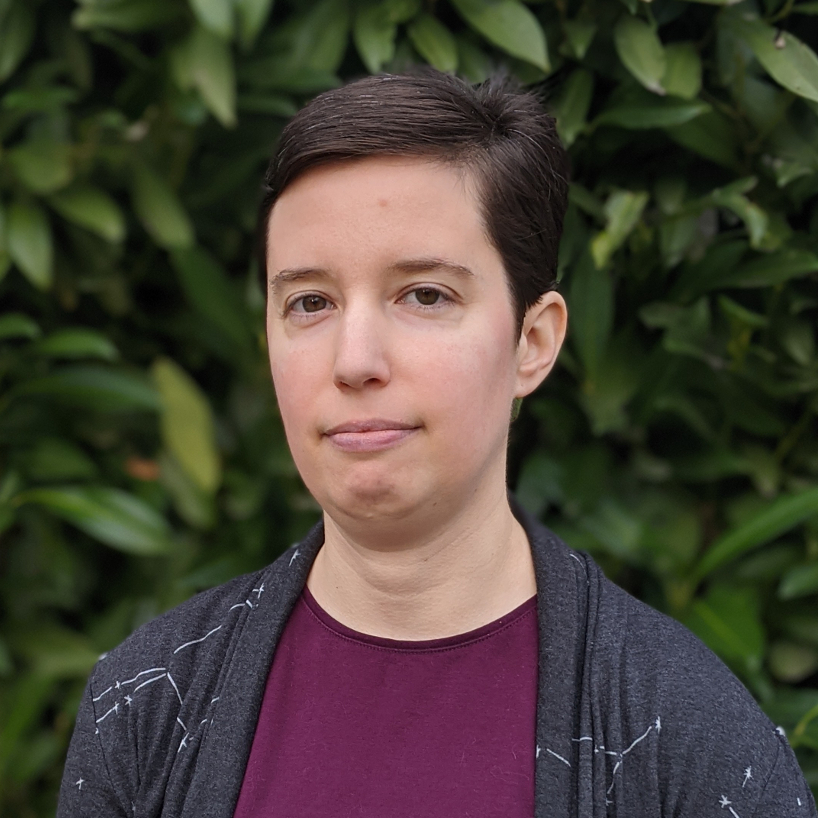Unavailable. Unavailable. All the ingredients Shoshana had special-ordered were unavailable.
“But I placed that order weeks ago!”
“I’m sorry, but there’s nothing I can do,” the station quartermaster said. “The war in the Celosian System has messed up our supply lines. Here, I’ll show you what’s available for substitutions…”
A list appeared on her holo beside the quartermaster’s face, and Shoshana skimmed it with growing despair. It was no good. There was no substitute for what she needed.
He gave her a sympathetic look. “It’s the cost of working way out here. You all get to do amazing science on Kepler Station, but you can’t always get luxuries when you want them. Sometimes you have to make do.”
It was kindly meant, but it made her feel like a spoiled child. He didn’t understand. She thanked him with strained grace, ended the call, and dropped her head to her hands. “No strawberries. What am I going to do?”
The couch shifted as Kindra sat beside her. “Why is this suddenly so important to you? You’re not religious. We don’t usually even have a seder.”
“It never seemed to matter, but now…” She gestured helplessly at their daughter, engrossed in her toy blocks. “This is the first Passover that Ora will be old enough to remember. This is my people’s history, her history. We’re already so far from home.”
For a moment, Kindra was silent. Shoshana stared at the ingredients scattered around their tiny in-quarters kitchen. She’d never been observant, never celebrated the holidays after she left for school, but her memories of childhood were rich with the crack of unleavened bread, the balance of bitterness and sweetness on her tongue. The singing she loved in a language she couldn’t understand.
“Are you having regrets? About coming here?”
“No!” Shoshana looked up, startled, and cupped Kindra’s face between her hands. “This Kepler Star Nursery posting, it’s the opportunity of a lifetime. For both our careers! We’re literally studying stars being born! And we got unbelievably lucky finding positions for both of us here at the same time.” Ora was tugging at her pant leg, and she picked her up, hugging her close. “But she’s a bigger miracle than any star. She’s my star, and I need to get this right. For her.”
“That, I understand perfectly.” Kindra patted her shoulder. “I think you know who you need to call.”
As usual, her beloved was right. Shoshana snuggled Ora on her lap, opened her console, and called home.
“Oh hello, my beautiful baby!” Her grandmother blew kisses, making the little girl laugh.
“Hi, Bubbe.”
“Shoshana, sweetheart, what’s wrong?”
“Is it that obvious?” Suddenly she was holding back tears. “Nana, I’m so ashamed, everything is so far away and I can’t even make the charoset…”
“Here, here, slow down! It’ll be all right, just explain it to me.”
Ora patted her face with clumsy little hands, adorably concerned, and that helped. Slowly, with deep breaths, Shoshana explained. “My special order didn’t come in. I’ve got no berries for the charoset, the matzoh I baked is hard as a bone, and… bone, where am I supposed to get an actual bone for the seder plate? And…”
“A disaster! You’d better give up now, before you ruin Pesach forever.”
Shoshana blinked at the screen. “Are you making fun of me, Bubbe?”
Her grandmother’s teasing smile grew wider. “I’m suggesting you should go easier on yourself. You’re doing this for little Ora, right?”
“How did you know?”
“I felt the same when your father was born, wanting him to know where he came from. Traditions felt more important than before.”
“Yes, that’s it exactly.”
“So will you let her remember this as the holiday where you panic over missing berries?”
Shoshana laughed ruefully. “But what do I do?”
“The best you can. What did our ancestors do in Exodus when they were in too big a rush to let their bread rise?”
“I don’t…” Ora was squirming in her lap, and Shoshana set her down. “Oh. They baked it unleavened, and that’s where matzoh came from. But Bubbe—”
“But nothing. You’re being too hard on yourself, sweetheart. Are you really making matzoh from scratch? I’ve never done that in my life.”
“Ha! I don’t recommend it.”
“Let me tell you a secret: charoset isn’t usually made with berries.”
“What? But you always…”
“Traditionally, it was made from apples. When we started the New Jerusalem colony, we grew most of our food in greenhouses. Bitter herbs were easy to come by, but in those early years, there was no time or space to grow apple trees, so we squeezed in strawberry plants. One sweetness in place of another. We made do with what we had, and so will you.”
“Oh.” She fell quiet, trying to absorb that. She’d always imagined their traditions had carried on unbroken from Earth, but of course they’d have had to evolve. “We have apples here. Easier to transport than strawberries.”
“You see? You’ll be more traditional than me soon.”
She hesitated. Why didn’t that make her feel entirely better? “It won’t taste the same, though.”
“Likely not. Familiar foods are comforting, I know, especially when you’re far from home.” She cocked her head. “Is this just about teaching Ora? Or are you maybe just a tiny bit homesick?”
“Maybe?” Shoshana closed her eyes, and she could taste her grandmother’s charoset, her sticky-sweet tzimmes. She even missed the bland, faintly salty crunch of matzoh—okay, yes, more than a bit homesick.
“I hadn’t meant to give you this for years yet, but…” A pause while her grandmother poked at her console. “Here. Will this help?”
It was the family recipe for matzoh ball soup. The one Bubbe always threatened to take to her grave. Tears pricked Shoshana’s eyes. “You made this for me every time I was sick.”
“I had to keep matzoh meal on hand for it year-round. It was all you ever wanted.”
“I think I have all these ingredients… Yes. Wow. This helps a lot.”
“When life gives you inedible matzoh, smash it up and make matzoh ball soup.” Bubbe grinned. “This recipe isn’t strictly traditional, either, but I hope it tastes like home. Make the charoset, too, with your apples. It may not feel the same, but you’ll get as close as you can, and you’ll tell the old stories, and your little girl will learn about resilience.”
“Thanks, Bubbe. I love you.”
“Next year in Jerusalem.”
Shoshana smiled at the traditional words. “How about next year in New Jerusalem? Next year at home.”
Her grandmother winked at her. “Even better.”
The call ended, and Shoshana picked up her daughter, hugging her tight. “Come on, sweetie. I’m going to teach you to make a very old recipe.” Very old, and yet new.











